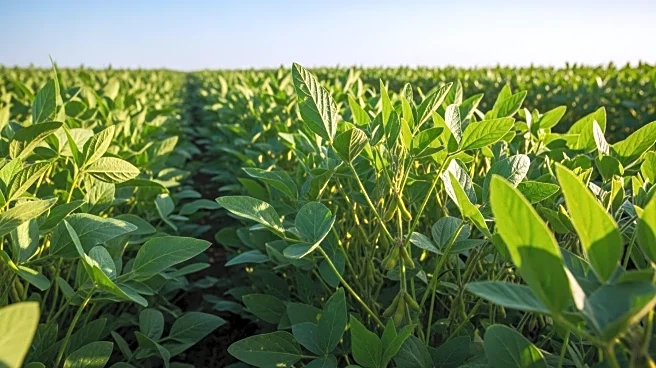What's Happening?
Brazil's soybean exports are projected to reach a record 102.2 million tons by the end of October, surpassing previous annual volumes due to strong demand from China. The absence of U.S. competitors in the Chinese market has allowed Brazil to capitalize on this demand, according to data from the grain exporter group Anec. Brazil, the largest global producer and exporter of soybeans, has seen its exports to China account for 93% of its total shipments in September. This trend is expected to continue, with projections indicating that Brazil will export 110 million tons of soybeans by the end of the year. The increase in exports is supported by a record soybean crop of over 170 million tons harvested in 2025.
Why It's Important?
The shift in soybean exports from the U.S. to Brazil highlights the impact of ongoing trade tensions between the U.S. and China. As China relies more heavily on Brazilian soybeans, U.S. farmers face reduced market opportunities, potentially affecting their income and the broader agricultural economy. This development underscores the significance of international trade relations and their influence on agricultural markets. The increased reliance on Brazil for soybeans may also strengthen Brazil's position in global agricultural trade, potentially leading to long-term shifts in market dynamics.
What's Next?
Brazil is expected to continue its strong export performance, with additional shipments projected for November and December. The ongoing trade tensions between the U.S. and China may further solidify Brazil's role as a key supplier to China. U.S. policymakers and agricultural stakeholders may need to reassess strategies to regain market share and address the challenges posed by international trade disputes.
Beyond the Headlines
The reliance on Brazil for soybean exports may have broader implications for global agricultural supply chains. As Brazil strengthens its position, other countries may seek to diversify their sources of agricultural imports to mitigate risks associated with geopolitical tensions. Additionally, environmental concerns related to large-scale soybean production in Brazil, such as deforestation, may become more prominent as export volumes increase.










